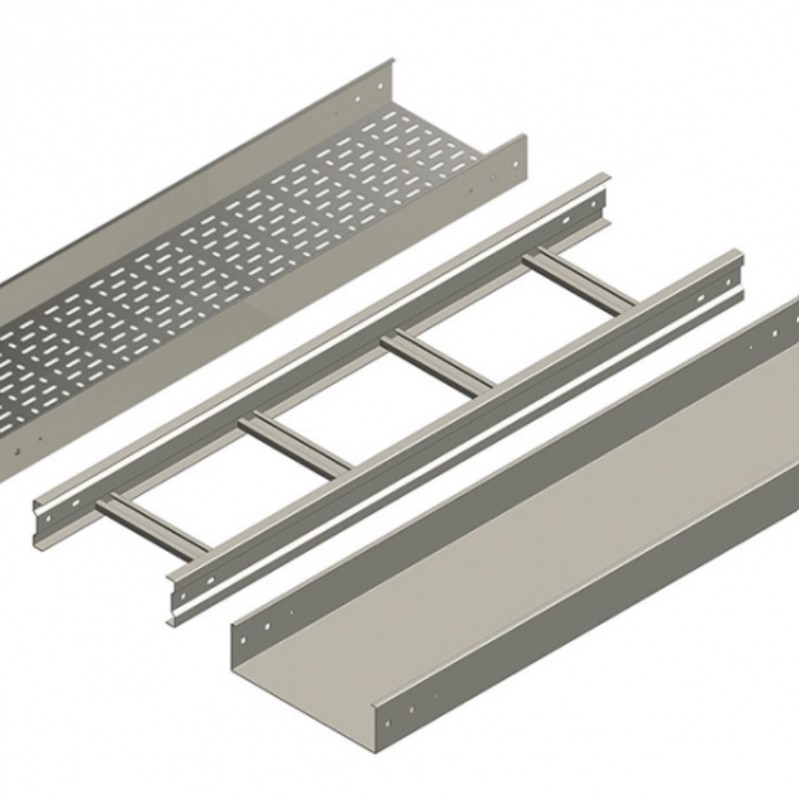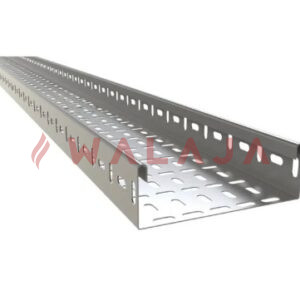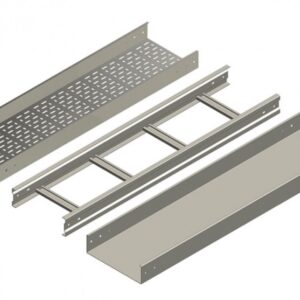GI Cable Trays Size: 150 mm x 50 mm, Thickness: 1.2 mm
Good Quality Approved
GI cable tray systems provide safe and efficient support for cables in various settings, ensuring organized and secure cable management.
Here’s a description of GI cable tray:
- Material: Cable trays are made of galvanized iron, which is iron or steel that has been coated with a layer of zinc to protect it from corrosion. This galvanized coating provides durability and resistance to environmental elements, making cable trays suitable for both indoor and outdoor use.
- Construction: Cable trays are typically constructed from rolled steel sheets that are formed into various shapes and sizes to accommodate different cable routing needs. They come in different widths, heights, and depths to accommodate various cable loads and configurations.
- Types: There are several types of Cable trays available, including ladder type, perforated type, solid bottom type, and wire mesh type. Each type has its own characteristics and is suitable for specific applications. For example, ladder-type cable trays consist of side rails connected by crossbars, providing strong support for heavy cable loads. Perforated cable trays have holes punched into the sidewalls and bottoms for ventilation and easy cable access.
- Installation: Cable trays are typically installed overhead or along walls using brackets, supports, and accessories such as bends, tees, and intersections. They can be mounted horizontally, vertically, or even suspended from the ceiling, depending on the layout and requirements of the installation.
- Benefits:
- Corrosion Resistance: The galvanized coating on GI cable trays provides protection against corrosion, extending their lifespan.
- Strength and Durability: Cable trays are robust and can support heavy cable loads without bending or deforming.
- Easy Maintenance: The smooth surface of GI cable trays makes them easy to clean and maintain.
- Versatility: Cable trays are versatile and can be customized to suit various cable routing configurations and installation requirements.
- Applications: Cable trays are commonly used in commercial buildings, industrial plants, data centers, power plants, and other infrastructure projects to organize and protect electrical cables and wires. They are particularly suitable for environments where corrosion resistance and durability are essential.






Reviews
There are no reviews yet.